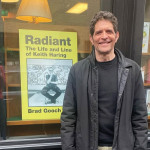 People in neighborhoods all over New York City recognize C. Virginia Fields. For nearly 20 years she played several major roles in city government—including a seven-year term as Manhattan Borough President and a run for mayor. Now, as the new president and CEO of the National Black Leadership Commission on AIDS (NBLCA), she brings her political energy to a different campaign: Battling HIV/AIDS in the African-American community.
People in neighborhoods all over New York City recognize C. Virginia Fields. For nearly 20 years she played several major roles in city government—including a seven-year term as Manhattan Borough President and a run for mayor. Now, as the new president and CEO of the National Black Leadership Commission on AIDS (NBLCA), she brings her political energy to a different campaign: Battling HIV/AIDS in the African-American community.
What made you decide to take this position with NBLCA?
The alarming increase of HIV/AIDS within African-American communities around the country. We are 13 percent of the U.S. population, but more than 50 percent of the newest HIV cases, according to the CDC [Centers for Disease Control and Prevention]. And 69 percent of all newly diagnosed women are black. After 27 years [of AIDS], these stats are disturbing. Those rates and the lack of resources [that are needed] to create more awareness, care and treatment drove me to take this job. My interest was to be part of looking at the policies surrounding this problem—and the funding. Policy helps to inform funding decisions, both in the public and private sectors. Given my experience in government, I wanted to help draw attention and resources to the problem. I wanted to be part of the solution.
How is the job going?
It’s been a busy few months since I began. I’ve been meeting people in the field and becoming aware of their amazing work. In the past, I was on the other side of the equation. I allocated millions of dollars to housing and programs. Now I’m getting acquainted with this side, the side looking for the money.
There are frustrations. The sense of complacency [about AIDS] is huge. The pictures we saw in the early 1980s, when people were dying, are no longer in the public eye. Instead, it seems to people that we’ve turned a corner—that HIV is no longer a problem. So people are not committed in terms of dollars and behavior. There’s a sense that AIDS is not as important to fund as it once was.
What do you think is the greatest obstacle to reducing HIV rates for African Americans?
I think it’s creating the awareness and resources at a community level. We at NBLCA are a policy and advocacy training organization. We have affiliates in about 12 cities, and we’re looking to expand. We work at the local level, with clergy and business leaders. People on the ground do not have the resources they need. [For one thing,] we need a comprehensive educational program in schools, where health education focuses on HIV/AIDS. When students get more information in school, it results in a change in behavior.
What other programs would you’d like to see funded?
We’ve already promoted some housing initiatives for people with HIV. There is also a need for access to health care, and to reduce the health care disparities. One way NBLCA has tried to approach some of this is by convening a meeting of clergy last year. That convocation produced a piece of legislation that will be introduced in Congress, calling for elimination of HIV. The legislation touches on homelessness and poverty. Our ability to wipe out HIV depends on empowering people to address those issues. If you’re homeless, you won’t be able to take your HIV meds—if you have them—as you need to. If you’re on drugs, your priority is not going to be getting or taking HIV meds. We emphasize those things both in the community and in legislation.
Are any of your efforts focused on particular segments of the community, such as men who have sex with men (MSM), among whom rates of HIV are extremely high?
Our National HIV Elimination Act addresses the needs in every category within the community. But we do try to support groups such as Gay Men of African Descent (GMAD) that direct their programs at young black gay men and MSM. Although we don’t provide direct services, we try to influence policy and funding.
Speaking of policy, what is NBLCA’s position on HIV in prisons—including the ban on condoms and clean needles for prisoners?
We support the distribution of condoms and clean needles everywhere, including in prison. We don’t condone drug use, but it is a major route of HIV transmission, so we support needle exchange. We are also concerned with states such as Alabama, where prisoners with HIV are barred from participating in work release programs. Work release programs help people make the appropriate transition to life after release, and we want to help change that Alabama policy.
An increasing number of people coming out of prison may not know they are positive, or do know but don’t know how to get into treatment. So we’re also promoting legislation to require routine testing of all people leaving prison—they are tested upon entry into the prisons—and access to care. There has to be a continuum—we can’t just say, ‘you’re positive,’ and then release people with no resources.
Do you have plans to promote policies about AIDS to the Barack Obama campaign?
I certainly have hope that we can make domestic AIDS more of a priority under an Obama administration. I’m part of efforts to [make this happen] as part of the transition team, and I’m hopeful that in the next administration treatment and care, awareness and support for our community will be possible. I do believe that will be a great day, and it’s part of why I’m doing this.
For more information: NBLCA.org
C. Virginia Fields: From Politician to Activist






Comments
Comments